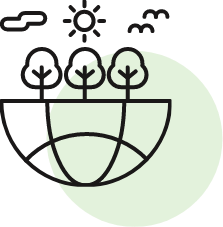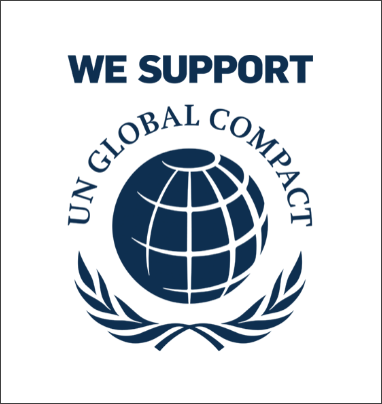Our United Nations Global Compact’s Communication on Progress Report 2020-2021 is out with a renewed commitment to address sustainability challenges in manufacturing and contribution to a greener humanitarian supply chain.
Sustainability
At NRS Relief, we integrate sustainability into our daily operations, emphasizing our humanitarian supply chain. Our commitment extends beyond environmental considerations to encompass social and economic progress. This dedication fosters a culture of sustainability throughout our organization, encouraging employee engagement in areas such as safety, health, human rights, diversity, and inclusion.
To ensure transparency, we monitor progress, collect data, and report initiatives. Our data governance framework spans our operations, enabling reliable indicators and emissions tracking. We strive to reduce our environmental impact in manufacturing through innovations in collaboration with our manufacturing arm, H. Sheikh Noor-ud-Din & Sons in Pakistan.

Economic responsibilities
We are committed to pioneering new solutions and sustainably creating fit-for-purpose products through value engineering. We focus on financial sustainability and pledge to continuously expand our portfolio of products and services. Our vision is that all stakeholders should benefit from the life- improving products we develop and design – from factory to field.

Social responsibilities
We focus on creating a safe, diverse, merit-based working environment that values teamwork and individual development. We actively engage with the humanitarian community and raise awareness for social causes. We support our manufacturing arm in Pakistan with community investment programs aimed at building community resilience through improved healthcare services and educational opportunities.

Environmental responsibilities
Minimizing our ecological footprint is an incentive rather than a burdensome exercise in compliance. We are committed to reducing emissions and waste while seeking to recycle and reuse across the production processes wherever possible. We initiated a project aiming at reducing the environmental impact and carbon footprint of relief items, targeting a 40% reduction in carbon emissions.

We support UN Global Compact
As an engaged participant, NRS Relief actively supports the United Nations Global Compact (UNGC), a policy framework that guides businesses regarding governance and sustainability strategies. The Compact is founded upon ten principles that encompass the vital areas of human rights, labour, the environment, and anti-corruption. Since the introduction of the Sustainable Development Goals (SDGs) in 2015, the UNGC has consistently advocated for a principled approach to these Goals within the private sector.
UN Global Compact and SDGs
Our principled approach to SDG 12 (Responsible Consumption and Production) and SDG 17 (Partnerships for the Goals) reflects our dedication to transparency within the humanitarian sector. Our commitment to the UN Global Compact (UNGC) and its mission is demonstrated through our active participation in various activities in the United Arab Emirates. This involvement has enriched our company and fuels our continuous improvement.
We have submitted our Communication on Progress (CoP) report to the UNGC, integrating the framework’s principles into our policy development. Our latest CoP report seamlessly combines with our Sustainability Report, reflecting our commitment to comprehensive data disclosure. Furthermore, we have adopted the Global Reporting Initiative (GRI) Guidelines as the foundation for our reporting.
View our enhanced Communication on Progress Report 2023
Global Compact on Refugees
As members of the humanitarian sector, we actively engage with global aid actors and their policies. We closely monitored the consultation process and final text of the Global Compact on Refugees, which was adopted by the UN General Assembly in December 2018. Our staff has undergone training and analysis on key themes such as local development, inclusion, and self-reliance aligned with emergency response.
Framework Alignment: Driving Sustainability in the Humanitarian Sector
The humanitarian sector’s complex interactions between public, private, and civil society call for the alignment of corporate sustainability frameworks. Companies often use ISO Standards for management systems and GRI Standards for reporting. The introduction of SDGs in 2015 prompted the creation of the SDG Compass, a guide resulting from partnerships between UNGC, GRI, and ISO. This alignment is vital in the humanitarian supply chain to prevent negative social and environmental impacts during production. As global sustainability frameworks become increasingly connected and customized for private companies, humanitarian suppliers should steadily implement them into their businesses.







